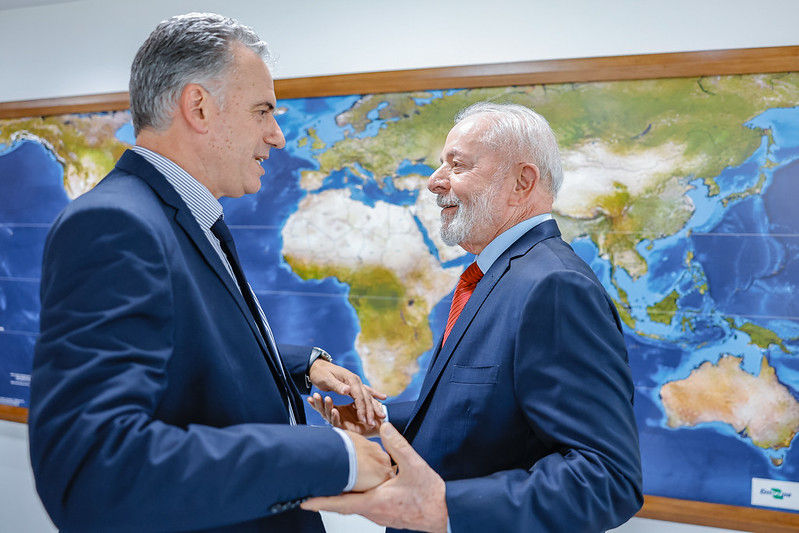
Published 02/12/2024 13:58 | Edited 12/02/2024 19:59
Next Thursday (5), President Lula travels to Montevideo, capital of Uruguay, where the 65th Mercosur Heads of State Summit will take place. He must remain in the neighboring country until Friday (6). From the perspective of the Brazilian delegation, the meeting should mark progress in the debate on the group’s agreement with the European Union.
The move marks the president’s return to international travel after the domestic accident he suffered at the end of October. Since November 10, the president had already been cleared by the medical team accompanying him to take longer distance flights.
Attendance at the Summit was already on Lula’s agenda, but it was officially sealed last Friday, the 29th, when he received the elected president of Uruguay, Yamandú Orsi. The new president will only take office in March of next year, but he should have an active presence in this edition of the Mercosur meeting as part of the transition efforts between the government of the current president, Lacalle Pou, to his own.
The last meeting of Mercosur heads of state took place in July, in Asunción, Paraguay. At the time, Bolivia sealed entry into the bloc.
Mercosur-European Union Agreement
Lula received the Uruguayan leader, representative of the left-wing Frente Amplio coalition, at Planalto. Orsi highlighted that negotiations on the agreement between Mercosur and the European Union will be a priority at the Mercosur Summit this week.
The agreement has been debated for more than 20 years and it is in the utmost interest of the Brazilian government and the countries of the South American group that it be implemented. For most European countries too. However, the progress of the final negotiation procedures has caused opposing demonstrations in countries such as France.
Read more: Carrefour retracts after suggesting a veto on meat from Brazil and Mercosur
Protests by French farmers for protective measures generated friction as in the case with Carrefour, in which its CEO, Alexandre Bompard, had to publicly apologize for criticizing the origin of Brazilian meat – a situation that led to a small crisis with Brazilian producers who stopped supplying products to the chain’s markets in Brazil until the retraction occurred.
Another unfounded measure was the French parliament’s vote against Brazilian meat, already on the agenda against the Mercosur-European Union agreement. Despite this decision, the vote is only symbolic, as the agreements will be decided by the European Council and the bloc’s Parliament and not by the countries that belong to the European Union individually.
Optimism
Both Lula and Orsi remain optimistic for a positive outcome to the agreement. The interest is reciprocal with most countries in the European bloc.
For the Brazilian president, who has led efforts to conclude the agreement since his first governments, a positive outcome would mark an unprecedented victory for national foreign policy.
Last November, the Brazilian government already scored a great feat with the approval by 82 countries for the creation of the Global Action against Hunger and Poverty within the scope of the G20.
With Europe, the government is betting on a win-win policy between the two blocs to create one of the largest free trade zones in the world.
The agreement provides for the expansion of markets for those involved in reducing and eliminating tariffs.
For the European bloc, there is interest, mainly, in increasing exports of industrial products, as well as having access to critical minerals (lithium, graphite, nickel) for its factories.
Read more: Brazil is ready to sign the Mercosur-European Union agreement, says Lula
For South Americans, there is an increase in commodity exports and the possibility of attracting investments and increasing the manufacturing park with more accessible machines and equipment, which can boost productivity and competitiveness.
Specifically for Brazil, the government is working with a study by the Institute for Applied Economic Research (Ipea) that indicates a 0.46% growth in Brazilian GDP with the agreement between 2024 and 2040. Furthermore, the agreement could increase investments in the country by 1.49%, compared to the scenario without the partnership, Planalto attributes.
Source: vermelho.org.br

